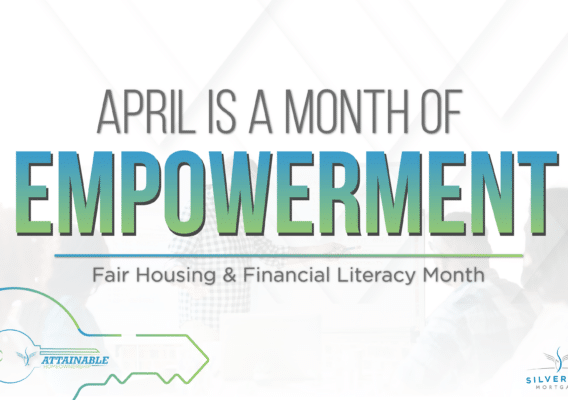One of the most important and necessary steps in the mortgage process is obtaining an appraisal. The majority of lenders require this in order to confirm that the value of the property aligns with the amount being borrowed. In this post, we’ll cover everything you need to know about appraisals, including why they are necessary and what to expect during this stage of your homeownership journey.
An appraisal is an objective estimate of a home’s market value that is conducted by a licensed appraiser. This is done to protect the lender by ensuring that the home’s selling price is appropriate based on its condition, location, and other factors that we’ll discuss later. In other words, the main purpose of an appraisal is to make sure that a lender isn’t loaning more money than the home is worth. In a recent article, Al Graham, Regional Manager of Georgia, Alabama, and Florida at Silverton Mortgage explained, “Appraisals are important to mortgage lenders because they ensure that the institution does not approve a loan to a borrower for more money than the property is worth. The appraisal also protects the buyer from overpaying for a property.” Since the home serves as collateral for the mortgage loan, your lender needs assurance that you’re not over-borrowing. In the worst-case scenario of the borrower defaulting on their mortgage and going into foreclosure, the lender sells the home in an effort to recoup the money that was loaned. An appraisal helps the lender protect itself from lending more money than can be recovered.
Be sure not to confuse an appraisal with an inspection. An appraisal estimates the property’s value and is ordered by your lender before you can close on your loan. A home inspection is ordered by the buyer and is usually optional, but it is a good idea to get one as it is a thorough report of the home’s conditions. With an inspection, you’ll learn of issues such as termite damage, mold, or electrical problems. Basically, an appraiser puts a value on the property in order to protect the lender while an inspector evaluates the condition of the home for the benefit of the buyer. An appraisal is typically required and is usually completed after you’ve submitted a loan application and decided to proceed with the loan.
While your lender orders the appraisal, you are typically responsible for the cost. Costs for an appraisal vary, but you can expect to spend upwards of $500 to be paid at your closing. But what are you getting for your money? After an appraisal, you’ll have the market value of your home calculated by a licensed professional. This is done by comparing your desired property to similar properties in the area that have recently sold. Appraisers also consider the general condition and age of the home along with its location and size. Some features such as additions, remodeled rooms, swimming pools, and wood flooring are also included in the final report. Other items typically found in your appraisal report include an explanation of how the value of the property was determined, the condition of the house along with any improvements that may have been made, and a rundown of any serious problems such as a cracked foundation or water damage. It will also provide specifics regarding the area in which the property is located, like new developments that have recently been established, along with an evaluation of recent market trends. Maps, photographs, and sketches will accompany the report to support its findings.
There are instances where home appraisals report the value of the property lower than what is ideal for the buyer. Maybe the neighborhood value has been declining or there are too many issues with the state of the home. Or perhaps the property has sentimental value for you because it’s close to relatives or in a desired school district. Regardless of the reason, a low appraisal can halt the mortgage process in its tracks because a lender will typically only lend up to the appraised amount.
This may present a challenge for the buyer. In some cases, a low appraisal may persuade the sellers to lower the price; however, if you still want to purchase the home, it is typically up to the buyer to cover the difference between the appraised value and the agreed-upon selling price (assuming the lender will still go forward with the loan). The other option is to appeal the appraisal or order a second appraisal using a different appraisal company.
Don’t let the idea of an appraisal scare you away from pursuing your dream of owning your own home. It’s simply part of an in-depth process designed to protect everyone involved. If you have questions about appraisals or any other part of the mortgage process, contact a Silverton Mortgage professional and let us ease your mind.
You Might Also Like

Navigating the Mortgage Maze: The Mortgage Process Simplified

April: The Month of Empowerment

